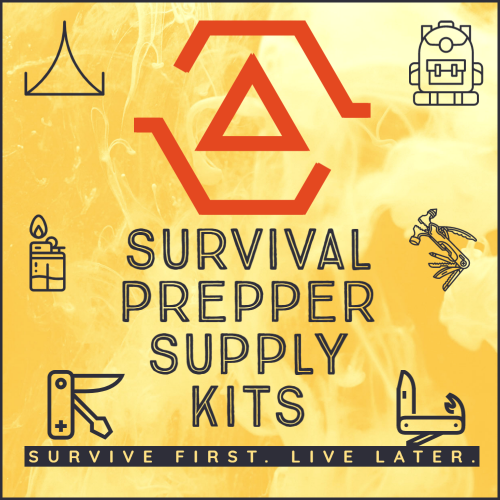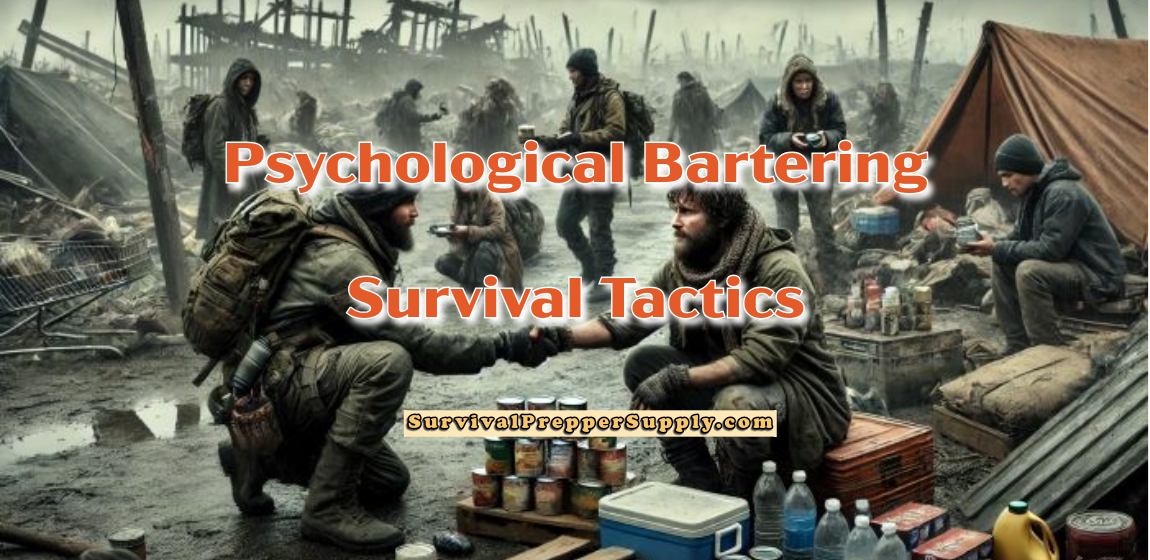Bartering is the act of trading goods or skills. It can be instrumental in survival because both parties will get the needed supply or service. Without the luxury of being able to go to a store or order something online, many people resort to bartering when they’re in a bind.
Even though bartering may seem simple, there’s a lot of psychology behind it—especially in high-stress situations where you or others may be facing dire situations and events.
Knowing how to read bartering situations and having the ability to negotiate with people can help you get good deals when you need them most. Even if you have supplies to spare, this skill can help you keep more of your belongings for the future.
Stay Self Aware
A critical aspect of bartering successfully is being aware of how you behave in these situations. Letting your mindset slip and acting panicked can squash opportunities for trades you could’ve made to your benefit otherwise.
In bartering situations, you need to portray yourself as confident and calm. If you seem irrational, people may hesitate to work with you and may see you as a threat or be easily swayed.
If you act unsure of yourself and the value of your offer, people may see you as a doormat and try to manipulate you into getting what they want. Make sure you’re constantly being reasonable in your trades.

Check yourself to see if you’re overly stingy, but don’t be too generous, either—you are in a survival situation. Getting overly attached to items is easy, especially in a survival scenario.
But remember that giving up some items will get you something you need in return. If you’ve made the intelligent decision to stock up on products you’ve set aside to barter with – or you have skills to give in return, you’ll be in a better position to negotiate without hesitating.
Work on Reading People
Being able to read people can be extremely helpful in bartering situations. It can give you an idea of what someone is thinking without asking them, which can help you act accordingly when offering or asking for supplies.
Small things we’d usually overlook, like posture and slight changes in facial expressions, can tell you a lot about how a person is feeling. For example, avoiding eye contact could indicate feeling nervous or unsure about your offer.
This can help you tweak your negotiation with them as much as you’d like to secure the trade if it’s important enough to you. There are many online sources where you can read about body language cues and even see them practiced.
You can even find content from former government workers involved in agencies such as the FBI, where they discuss reading body language. People give away much information about their mindset and emotions with clues they don’t know they’re expressing.
Using Psychological Negotiation Tactics
Certain tactics can make your bartering interactions smoother. These tips can be especially helpful when dealing with someone stubborn or stingy who wants to give you a bad deal.
The first tactic you can use is framing.
- Framing is when you give someone information that changes their opinion on something, usually in a good light.
- This can help others see the importance of some of the items you offer and make them more likely to accept your offer.
For example, something like hard candy may initially seem useless to most people. Still, if you present it as something that can provide comfort through trying times and quickly raise low blood sugar in food scarcity, the other party’s opinion may be shaped by that information.
The second negotiation tactic you can use is anchoring.
- Anchoring involves focusing the negotiation around the first offer, which can make the other party think they’re getting a better deal when, in reality, the barterer’s goal was the final offer the whole time.
For example, you might have a surplus of firewood. You need food or water. You make the initial offer by asking for a lot in return for very little, like a week’s worth of food for a small bundle of firewood.
They will balk by making a counteroffer to give you three days’ worth of food. Before your offer, they may not have even thought they’d give that much, but now they’re working down from your extremely high “price point.”
Another negotiation tactic you can use is mirroring.
- Mirroring is when you use similar body language or speak similarly to your bartering partner to build trust, as people feel comfortable around those they can relate to.
Building trust is good for bartering, as the other person will trust that you’re offering a good offer and providing good-quality items. When mirroring, it’s important to find the balance between acting similar to someone and copying them completely.
Don’t perform their exact movements at the same time as them—for example, if someone tucks their hair behind their ear, don’t do the same thing right away, as this may come off as creepy and robotic.
You can combine this method with empathy.
- Many people, especially in high-stress situations like survival events, may completely shut down their empathetic nature to avoid letting emotions influence important decisions.
Share stories and have real conversations with those you’re trading with to build trust and relatability. Be careful not to share sensitive information about other supplies you have or how much stock you have, as this could make you a target for stealing.
Using these psychological tactics when bartering can undoubtedly get you better deals, but use these tips ethically. Don’t manipulate people into accepting one-sided bad deals, especially when others’ survival might depend on it.
Your aim should be for this to have a mutually beneficial ending. You want both parties to walk away feeling satisfied they got something they wanted or needed. Remember, you might be bartering with this same individual in the future, so now is not the time to burn bridges.
Remember any skills you might have when bartering that someone else may need. It’s not just about supplies. For example, one negotiation tactic might be to layer on the offer with an additional option.
You might start with a supply exchange, but in the discussion, you learn that their car has broken down, and no one is available now to fix it. If you have that skill, you can add it as part of the offer to look at it and repair it to get it working again.
Bartering is fun to practice during calm times when you’re not in a survival situation. You can go to estate sales, garage sales, farmers’ markets, and even go online to things like Facebook Marketplace and practice what you know needs to be done in a survival bartering scenario.
This will hone your skills and make you more relaxed about needing to do it in the future. Don’t forget to teach this skill to your loved one. They may need to negotiate when you’re not around, and knowing how it works from an early age is smart.






